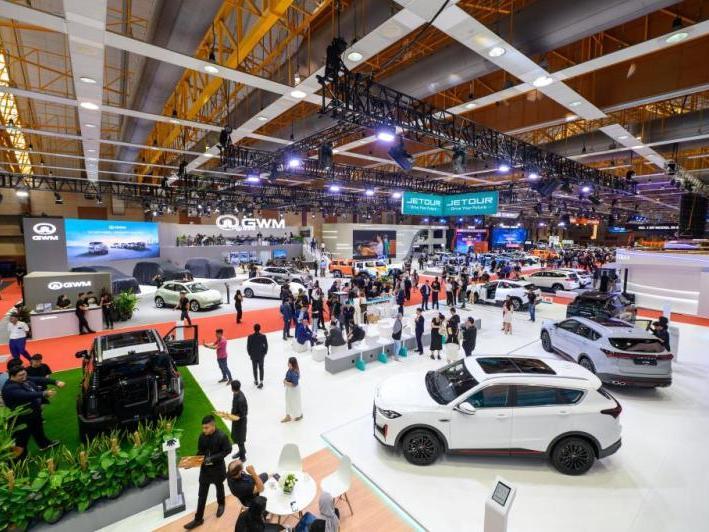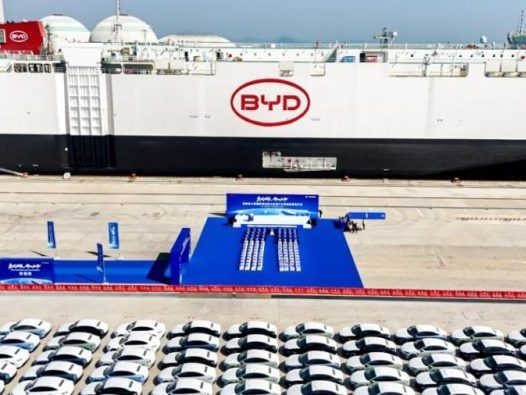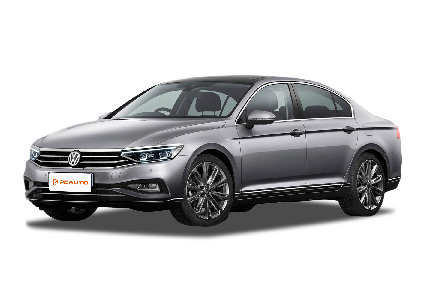Q
How to check the transmission fluid in VW Passat?
To check the transmission fluid in a Volkswagen Passat, start by parking on level ground and letting the engine run until the transmission reaches operating temperature—usually after 10-15 minutes of driving. Cycle through all gears briefly, pausing in each, before returning to Park. Pop the hood and locate the transmission dipstick or inspection plug (some newer Passats might use an electronic oil level check via the dashboard menu). The fluid level should sit between the "MIN" and "MAX" marks. While you're at it, check the color—bright red means it's in good shape, but if it's dark brown or smells burnt, it's time for a change.
Here in Malaysia, the hot climate can speed up transmission fluid degradation, so it's smart to check every 60,000 km or as per the maintenance manual. Keep in mind, DSG dual-clutch gearboxes have slightly different care needs compared to traditional automatics. Some models even come with a sealed design labeled "maintenance-free," but regular checks can still catch issues early.
If DIY feels tricky, head to a VW authorized service center. They’ll use professional tools to test it properly and can also update the transmission software for smoother shifts. After all, getting the fluid level and quality right is key to extending your gearbox’s life—especially for a comfort-focused ride like the Passat, which deserves that extra bit of care.
Special Disclaimer: This content is published by users and does not represent the views or position of PCauto.
Related Q&A
Q
Is Passat 2020 automatic or manual?
The 2020 Volkswagen Passat mainly offers automatic transmission versions in the Malaysian market. Specifically, it is equipped with a 7 - speed DSG dual - clutch transmission. This transmission is known for its quick gear changes and fuel efficiency, which is very suitable for the urban driving environment and long - distance travel needs in Malaysia. Although some markets around the world may offer manual transmission options, the officially imported versions in Malaysia usually focus on automatic transmissions. This is to adapt to the local consumers' preference for convenient driving. Regarding the choice of transmission, Malaysian consumers can rest assured. The DSG technology has been optimized for many years and performs excellently in terms of reliability and smoothness. At the same time, Volkswagen's after - sales service network in Malaysia is also relatively complete, which can provide good support for car owners. If consumers have special requirements for the transmission, it is recommended to directly contact the local dealers to confirm the latest configuration information, as the configurations of models in different years may be adjusted.
Q
Is Passat 2020 petrol or diesel?
In 2020, the Volkswagen Passat offered both gasoline and diesel engine options in the Malaysian market, depending on the vehicle configuration. The gasoline version was equipped with a 1.8 - liter TSI turbocharged engine, while the diesel version came with a 2.0 - liter TDI turbocharged diesel engine. Both were paired with a DSG dual - clutch transmission, which balanced power and fuel economy.
For Malaysian consumers, they need to consider their daily usage requirements when making a choice. The gasoline version is suitable for short - distance commuting in the city, with lower noise and relatively affordable maintenance costs. On the other hand, the diesel version is more suitable for long - distance driving or high - frequency users, thanks to its high - torque output and better fuel efficiency.
It's worth noting that the Malaysian government has strict road tax policies for diesel vehicles, and diesel engines need to be regularly filled with AdBlue (urea solution) to reduce emissions. These factors should be taken into account when making a car - buying decision.
In addition, regardless of which powertrain is chosen, the 2020 Passat comes standard with advanced driver assistance systems such as ACC (Adaptive Cruise Control) and Front Assist (Forward Collision Warning), and its safety performance stands out among vehicles in the same class.
Q
What is the fuel economy of a 2020 Passat?
The fuel economy of the 2020 Volkswagen Passat in the Malaysian market varies depending on the engine configuration. The version equipped with a 1.8-liter TSI turbocharged engine has a combined fuel consumption of approximately 6.5 liters per 100 kilometers, while the 2.0-liter TSI model is slightly higher, around 7.2 liters per 100 kilometers. The actual fuel consumption may be affected by factors such as driving habits, road conditions, and the use of air conditioning.
For Malaysian consumers, the fuel efficiency of the Passat is above average among mid - size sedans in the same class. Its EA888 engine technology combines direct injection and turbocharging, meeting both power and energy - saving requirements. If you're looking for a more fuel - efficient option, you can keep an eye on the Passat BlueMotion version (if it's introduced), which further reduces fuel consumption through optimized aerodynamics and a start - stop system.
It's worth noting that RON95 gasoline in Malaysia is fully compatible with these turbocharged models. Regular maintenance and using the original - specified engine oil are crucial for maintaining fuel economy. Hybrid or pure - electric vehicles may be a more energy - efficient choice in the future, but traditional fuel - powered cars are still the local mainstream for now. The balanced performance of the Passat makes it suitable for long - distance driving needs.
Q
What is the spec of the 2020 Passat?
In 2020, the Volkswagen Passat offered two gasoline engine options in the Malaysian market: the 1.8 TSI and the 2.0 TSI. The 1.8 TSI has a maximum horsepower of 180 and a peak torque of 250 Nm, while the 2.0 TSI boosts it to 220 horsepower and 350 Nm of torque. Both are paired with a 7-speed DSG dual-clutch transmission, providing a smooth acceleration experience.
This model comes standard with LED headlights, 18-inch wheels, three-zone automatic air conditioning, an 8-inch touchscreen infotainment system (supporting Apple CarPlay and Android Auto), and a number of safety features such as adaptive cruise control, blind-spot monitoring, and automatic emergency braking.
As a mid - to large - sized sedan, the 2020 Passat excels in terms of space. It has generous rear - legroom, and the trunk volume reaches 586 liters, making it suitable for long - distance family trips. It's worth noting that the Passat's body is made of high - strength steel, which not only enhances safety but also optimizes fuel economy. The official combined fuel consumption of the 1.8 TSI version is 6.4L/100km.
For Malaysian consumers, this German sedan maintains a high standard in terms of comfort and technological features. Additionally, the locally assembled (CKD) version makes the price more competitive, making it a great choice for buyers who seek the quality of European cars while also emphasizing practicality.
Q
Can I start my VW Passat 2022 with my phone?
Yes, some high - end models of the 2022 Volkswagen Passat in Malaysia may support the mobile phone start function. This usually requires installing the official Volkswagen application such as "Volkswagen Car - Net" and using it together with the vehicle's Keyless Access system. Specifically, you need to confirm whether your vehicle model is equipped with a digital key or a connected service module. This technology uses Bluetooth or mobile network connection to enable functions such as remotely starting the engine, pre - adjusting the air - conditioning, and checking the vehicle status, which is especially useful in the hot weather in Malaysia.
It should be noted that such functions rely on the vehicle's battery power and the strength of the mobile phone signal. It is recommended to keep the mobile phone application up - to - date to ensure compatibility. Currently, most brands like BMW and Mercedes - Benz also offer similar solutions, but the implementation principles may vary. For example, some rely on NFC near - field communication rather than network connection.
If your Passat does not come pre - installed with this function, you can consult the local authorized dealer about the possibility of retrofitting original parts later. However, be aware that modifications may affect the original factory warranty terms.
Q
Why is my 2020 Passat not starting?
There could be multiple reasons why your 2020 Passat won't start. First, it is recommended to check the battery status. The high - temperature and high - humidity climate in Malaysia can easily accelerate battery aging. If the voltage is below 12.4 volts or there are signs of corrosion, the battery needs to be replaced. Second, a clogged fuel pump or fuel filter can also affect the starting process, especially if you've been using low - grade gasoline for a long time. Faults in the starter motor or ignition coil are also common causes, which may manifest as just a "click" sound when starting or no response at all.
In addition, if the battery in the smart key system of the modern Passat is depleted or there is signal interference, the anti - theft system may lock the engine. It is advisable to try using the spare key first. For models equipped with the automatic start - stop function, frequent starting and stopping may cause premature wear of the starter motor. Regular inspections are recommended.
If any warning lights such as the engine fault light appear on the dashboard, it is recommended to use an OBD diagnostic tool to read the fault codes as soon as possible. The authorized Volkswagen service centers in Malaysia are equipped with the original diagnostic equipment VAS 5054, which can accurately locate the problem. During normal maintenance, pay attention to checking the condition of the spark plugs (it is recommended to replace them every 60,000 kilometers) and use engine oil that meets the VW 50200 standard. All these measures can effectively prevent starting problems.
Q
What engine is in a 2020 Passat?
The 2020 Volkswagen Passat in the Malaysian market mainly offers two engine options, namely a 1.4-liter TSI turbocharged gasoline engine and a 2.0-liter TSI turbocharged gasoline engine. The 1.4-liter TSI engine has a maximum power of 150 horsepower and a peak torque of 250 Nm. It is paired with a 7-speed dual-clutch transmission, which is suitable for daily commuting and has excellent fuel economy. On the other hand, the 2.0-liter TSI engine provides more powerful performance, with a maximum power of 190 horsepower and a peak torque of 320 Nm. It is also paired with a 7-speed dual-clutch transmission, making it suitable for users who pursue driving pleasure.
In addition, the Passat is built on Volkswagen's MQB platform, which performs excellently in terms of vehicle body lightweighting and handling stability. At the same time, it is equipped with a number of intelligent driving assistance systems, such as adaptive cruise control and lane-keeping assist, which enhance driving safety.
For Malaysian consumers, the engine options of the Passat strike a balance between economy and performance. Coupled with Volkswagen's relatively well - established after - sales service network in the local area, the Passat is a mid - size sedan worthy of consideration.
Q
What is the fuel range of the 2020 Passat?
The fuel range performance of the 2020 Volkswagen Passat in the Malaysian market depends on the specific model and engine configuration. Taking the common 1.8 - liter TSI turbocharged gasoline engine as an example, with a 66 - liter fuel tank capacity, the range in combined driving conditions is about 850 to 900 kilometers. If driving at a constant speed on the highway, it can reach around 1000 kilometers. The 2.0 - liter TDI diesel version can further improve the range to about 1200 kilometers due to the high - efficiency characteristics of the diesel engine.
Malaysian consumers should note that the actual range will be affected by driving habits, the frequency of air - conditioning use, and urban congested road conditions. For example, frequent rapid acceleration or long - term idling will significantly increase fuel consumption. It is recommended to regularly maintain tire pressure and engine condition to optimize fuel economy.
Hybrid versions of similar - class models such as the Toyota Camry or Honda Accord have better fuel - saving performance in urban areas, but the traditional fuel system of the Passat still has advantages in long - distance driving and the popularity of gas stations, making it suitable for users who often travel across states.
In addition, the RON95 gasoline subsidy policy provided by the Malaysian government also makes the daily use cost of the gasoline - powered Passat relatively controllable. It is recommended to choose the appropriate power configuration according to your daily commuting distance and fuel budget before purchasing a car.
Q
How long will a 2020 Passat last?
The service life of the 2020 Volkswagen Passat in Malaysia mainly depends on maintenance conditions, driving habits, and local climate conditions. If you regularly perform maintenance as recommended by the manufacturer (such as changing the engine oil and checking key components every 15,000 kilometers or 12 months), use genuine parts, and avoid long - term exposure to high - temperature and high - humidity environments, this car can usually travel between 200,000 and 300,000 kilometers or last for more than 15 years.
The Passat is equipped with a TSI turbocharged engine and a DSG transmission with mature technologies. However, special attention should be paid to regularly replacing the transmission fluid and timing chain to extend the lifespan of the power system. In Malaysia, due to the high frequency of traffic congestion in cities, it is recommended to shorten the inspection intervals for brake pads and transmission fluid. Also, be aware of the impact of water accumulation during the rainy season on chassis corrosion.
Among vehicles in the same class, Japanese cars may be known for their low maintenance costs, while European cars have an advantage in high - speed stability. Car owners can make a trade - off based on their own needs. The actual condition of the vehicle is also affected by the usage history of the previous owner. When buying a used car, it is recommended to confirm key indicators such as the engine compression ratio and the aging degree of the chassis rubber bushings through professional inspections.
Q
What is a 2020 VW Passat worth?
In 2020, the second - hand car prices of the Volkswagen Passat in Malaysia were approximately between RM90,000 and RM130,000. The specific value depends on factors such as the vehicle's condition, mileage, configuration version, and maintenance records. For example, the price difference between the entry - level version equipped with a 1.8 TSI engine and the high - end 2.0 TSI version can be up to RM30,000. Usually, for each additional year of the vehicle's age or every 10,000 kilometers exceeded in mileage, the price will decrease by 5% to 8%.
It's worth noting that as a German mid - size sedan, the Passat has a better resale value in the second - hand market than some Japanese competitors. This is due to its solid chassis tuning and the reliability of the EA888 engine. At the same time, it is recommended that buyers give priority to vehicles with complete original - factory maintenance records and pay attention to checking the shifting smoothness of the 7 - speed DSG transmission. Such details will significantly affect the long - term use cost. In Malaysia's hot climate, special attention should also be paid to the aging of rubber parts. Regularly replacing the coolant and transmission oil can effectively extend the vehicle's service life.
Latest Q&A
Q
How to change the ambient lighting in a Jaguar F-Pace?
Changing the ambient lighting color in your Jaguar F-Pace is a breeze. First, fire up the vehicle and make sure the infotainment screen is on. Then, head into the main menu and look for the "Vehicle Settings" option. Select "Ambient Lighting" from there, and you'll see a bunch of preset colors to choose from—blues, reds, whites, that sort of thing. Just tap your favorite on the touchscreen, and the system applies it right away. You can also tweak the brightness to fit different driving conditions. If you're a Malaysian owner, it's best to do this at night or in dimly lit areas so you can really see how it looks.
The ambient lighting in the F-Pace isn't just about upping the interior's premium vibe; it lets you set the mood in the cabin to match your personal style. It's a pretty common feature in luxury brands these days—Mercedes and BMW offer similar stuff—but what sets Jaguar apart is how well the lighting pairs with the interior materials. It just makes the whole cabin feel that much more luxurious. If you're really into customizing your in-car lighting, swing by your local Jaguar dealer and ask if there are any extra customization options or upgrade services available.
Q
How to set up cruise control in Jaguar F-PACE?
To set up cruise control in your Jaguar F-Pace, first make sure you’re on a road where it’s safe to use—you’ll need to be going at least 30 km/h. Hit the cruise control button on the left side of the steering wheel (it usually says "CRUISE" or has a speedometer icon), and you’ll see the cruise ready indicator pop up on the dashboard. Next, use the "+" or "-" buttons to set your desired speed, and the system will hold it steady. Need to pause? Just tap the brake or hit "CANCEL". To get back to your set speed, press "RES".
For our Malaysian drivers, a quick heads-up: be extra cautious using this on busy roads or in the rain. Don’t zone out and rely too much on the system—always keep an eye on what’s happening around you. The F-Pace’s standard cruise is solid, but step up to higher trims and you might get Adaptive Cruise Control (ACC), which automatically adjusts your speed to keep a safe gap from the car ahead. Either way, *you’re* still in charge—never take your focus off driving.
Lastly, keep those brakes and tires in check; regular maintenance helps the cruise control work like a charm. If you see any warning lights or the system acts up, swing by an authorized Jaguar service center in Malaysia to get it sorted out. Safe travels!
Q
What's the price of the Jaguar F-Pace?
In Malaysia, the price of the Jaguar F-PACE can vary depending on the trim level, optional extras, and current market promotions. Right now, you're looking at a starting price range of around RM 400,000 to RM 600,000 for a brand-new model. For the most up-to-date figures, it's always best to check in with your local authorized Jaguar dealer.
As Jaguar's luxury SUV offering, the F-PACE doesn't skimp on choice under the hood. You've got efficient Ingenium turbocharged engines for everyday driving, and if you're after a bit more punch with some eco-credentials, there's the potent PHEV plug-in hybrid version too – it really strikes a nice balance between performance and fuel efficiency.
What stands out about this Jag is its elegant design language, a nicely crafted interior, and all the latest tech. The Pivi Pro infotainment system comes as standard, and you get a comprehensive suite of driver assistance features. It's a solid pick for Malaysian buyers who want that blend of luxury and a bit of driving excitement.
On top of that, Jaguar has a pretty well-established after-sales service network in Malaysia. Owners can take advantage of the brand's warranty coverage and maintenance services, which definitely adds peace of mind to the ownership experience.
If the F-PACE has caught your eye, it's worth cross-shopping with other premium SUVs in its class, like the BMW X3 or Mercedes-Benz GLC. That way, you can make a really well-rounded decision before signing on the dotted line.
Q
How many seats is the Jaguar F-PACE equipped with?
The Jaguar F-PACE, a premium midsize SUV, comes standard with a 5-seat layout in a 2+3 configuration, easily handling most families' daily travel needs. The seats strike a nice balance between sporty support and all-day comfort, making them ideal for those long highway stretches or busy city commutes here in Malaysia.
Under the hood, you've got options. There's the efficient four-cylinder turbocharged engine, or if you're craving more punch, the more powerful supercharged six-cylinder. Both pair with an 8-speed automatic transmission that does a solid job balancing eager power delivery with decent fuel economy.
Tech-wise, Jaguar's got you covered with their advanced InControl Touch Pro system, which includes Apple CarPlay and Android Auto – exactly what Malaysian buyers expect these days.
Step inside, and the F-PACE doesn't disappoint on space. That 2,874mm wheelbase translates to generous legroom for rear passengers, while the boot offers a practical 508 litres as standard. Need more? Fold those rear seats down, and you've got a cavernous 1,598 litres to play with – perfect for weekend getaways or those big shopping hauls.
And let's not forget our Malaysian climate. The standard dual-zone climate control helps keep things cool, but if you really want to dial in comfort, you can option up to the four-zone system – a definite plus when the mercury rises.
Sure, rivals like the BMW X3 and Mercedes GLC also offer five seats, but the F-PACE stands out with its distinct British design flair. Plus, that aluminium-intensive body construction gives it a weight advantage, which really shines through in terms of nimble handling – something that makes every drive that little bit more engaging.
Q
What are the differences between the Jaguar E-PACE and F-PACE?
The Jaguar E-Pace and F-Pace are two SUVs under the Jaguar brand, with the main differences lying in their positioning and size. The E-Pace is a compact SUV, boasting a more小巧灵活 (nimble and compact) body that makes it ideal for city driving and squeezing through tight roads. It's powered by a 2.0-liter turbocharged engine, delivering better fuel efficiency – perfect for young families or daily commuters.
The F-Pace, on the other hand, is a mid-size SUV offering significantly more space, especially in the rear seats and boot, making it a great choice for long road trips or users needing extra cargo capacity. It also comes with a wider range of powertrain options, including the punchy 3.0-liter supercharged performance variant.
Both models feature Jaguar's signature luxurious interior design and cutting-edge tech, but the F-Pace leans more towards a premium experience in terms of comfort and driving dynamics.
In the Malaysian market, the E-Pace comes with a relatively lower price tag, making it more accessible for budget-conscious buyers, while the F-Pace caters to those seeking more space and stronger performance. Both SUVs are available with all-wheel drive, which is well-suited to Malaysia's varied road conditions, allowing consumers to choose based on their actual needs. Additionally, Jaguar has a well-established after-sales service network in Malaysia, providing reliable peace of mind for owners.
View MoreRelated News

Because of lack of funds to upgrade the factory, Volkswagen postponed the release of ID.Golf and ID.Roc
JamesSep 17, 2025

Volkswagen Locks Vehicle Horsepower, Unlocks Full Power via Subscription
JohnAug 19, 2025

Summarizing the 2025 Malaysia Auto Show, a large number of new cars were launched in Malaysia this year.
MichaelMay 12, 2025

Volkswagen ID.Buzz's Bizarre Recall: Third-Row Seats Too Wide, Need to Be Modified
Kevin WongMay 8, 2025

BYD Sets Global Sales Target of 5.5 Million Units for 2025
RobertMar 26, 2025
View More
















Pros
Cons